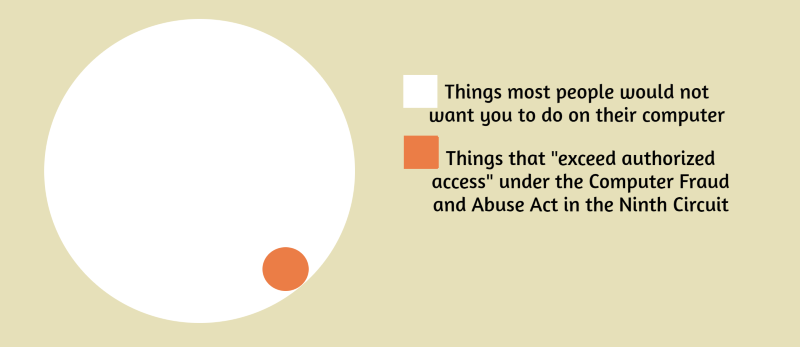
Plaintiff sued defendant for violation of the Computer Fraud and Abuse Act (“CFAA”). For almost 20 years, defendant had worked for a company that developed plaintiff’s proprietary software system. In this capacity, defendant had access to plaintiff’s customer database, accounting system and other confidential information. After leaving the work he was performing for plaintiff, defendant founded his own competing venture.
Defendant moved to dismiss the CFAA claim. The court granted the motion to dismiss. The court held that defendant did not exceed the scope of his authorized access by accessing certain of plaintiff’s documents, files or drives for the benefit of his own venture. Citing to United States v. Nosal, 676 F.3d 854, (9th Cir. 2012), the court observed that the Ninth Circuit has defined “exceeds authorized access” narrowly to include only someone who is authorized to access only certain data or files but accesses unauthorized data or files – or to put it simply: hacking.
In this case, defendant was authorized to access plaintiff’s systems by virtue of the work he was hired to do in connection with plaintiff’s proprietary software systems. Plaintiff had attempted to draw a distinction between the work he was doing for his former employer and the actions he was undertaking to benefit his new venture (even though those actions were one and the same conduct). The court rejected this reasoning: “[E]ven if defendant accessed [plaintiff’s] information for the eventual benefit of [defendant’s new venture], that does not mean he could not have also accessed it for [his former employer’s] authorized purpose of building software.”
It is worth noting that the contours of “exceeding authorized access” under the CFAA give rise to a circuit split. It is fruitful to consider whether the outcome of this case may have been different, for example, in the Seventh Circuit, under the doctrines set out in Int’l Airport Ctr., L.L.C. v. Citrin, 440 F.3d 418 (7th Cir.2006).
Regal West Corporation v. Nguyen, No. 19-5374, 2019 WL 4748393 (W.D.Washington, September 30, 2019)
